
On 20 Jan 1907, Agnes Mary Clerke was born, who was a diligent compiler of facts and published an exhaustive treatise, A Popular History of Astronomy in the Nineteenth Century. Today's book pick is: Agnes Mary Clerke Rise Astrophysics, by M. T. Brück, who paints a fascinating picture of the rich fabric of British astronomy and astrophysics at the end of the nineteenth century, including an extremely informative chapter on women in astronomy in the Victorian era. Clerke became the leading commentator on astronomy and astrophysics in the English-speaking world. As historian of astronomy in the last half of the 19th century, she chronicled the the rise of modern astrophysics with the development of larger and better telescopes, the use of photography in the mapping of the skies, and the invention of the spectroheliograph. From Cambridge University Press.
It is available from Amazon, typically about New from $36.55. Used from $38.04. (As of earlier time of writing - subject to change.)
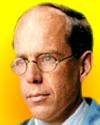 | I heard Professor Cannon lecture last night, going partly on your account. His subject was a physiological substitute for war—which is international sports and I suppose motorcycle races—to encourage the secretion of the adrenal glands! |
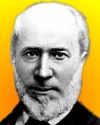 | Not one idiot in a thousand has been entirely refractory to treatment, not one in a hundred has not been made more happy and healthy; more than thirty per cent have been taught to conform to social and moral law, and rendered capable of order, of good feeling, and of working like the third of a man; more than forty per cent have become capable of the ordinary transactions of life under friendly control, of understanding moral and social abstractions, of working like two-thirds of a man. |
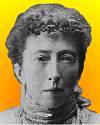 | What has been done is little—scarcely a beginning; yet it is much in comparison with the total blank of a century past. And our knowledge will, we are easily persuaded, appear in turn the merest ignorance to those who come after us. Yet it is not to be despised, since by it we reach up groping to touch the hem of the garment of the Most High. |
| Before you look at today's web page, see if you can answer some of these questions about the events that happened on this day. Some of the names are very familiar. Others will likely stump you. Tickle your curiosity with these questions, then check your answers on today's web page. | |
| Births | |
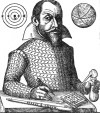 | On 20 Jan 1573, Simon Marius was born, a German astronomer who named the four largest moons of Jupiter in 1609. All four are named after mythological figures with whom Jupiter fell in love. He and Italian astronomer Galileo Galilei both claimed to have discovered them, about 1610, and it is likely both did so independently. What are the names of these four largest moons of Jupiter? |
 | An American astronaut, born 20 Jan 1930, set a record for extravehicular activity and was the second man to set foot on the Moon. Can you name this astronaut? |
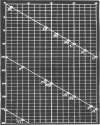 | Alexandre-Emile Beguyer de Chancourtois, born 20 Jan 1820, was a French geologist who was the first to arrange the chemical elements in a certain order (1862). He plotted them on the surface of a cylinder. The resulting helical curve brought closely related elements onto corresponding points above or below one another on the cylinder. Although significant, his publication was ignored by chemists as it was written in the language of geology. What characteristic did Chancourtois use to order the elements? |
| Deaths | |
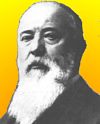 | Zénobe-Théophile Gramme (1826-1901) was a Belgian-born French electrical engineer and inventor (1869) of the Gramme dynamo. It produced much higher voltages than other dynamos of the time and was the first high-voltage direct-current generator practical for mass production and distribution. What provided the power to turn the generator? |
| Events | |
 | On 20 Jan of a certain year, the first U.S. patent for a roller coasting structure was issued to La Marcus Thompson of Coney Island, NY. In which decade was this patent issued? |
 | On 20 Jan 1998, American researchers announced they have cloned animals that may produce medicinal milk. They were cloned from fetal cells in which human genes were spliced into the animal DNA. Their goal was to turn the animals into drug factories, mass producing milk that contains human proteins important for treating human diseases. What animal was cloned in this way? |
Fast answers for the previous newsletter for January 19: steel • Matthew Boulton • Germany • nicotine • decade including the year 1915 • Zeppelins.
 If you enjoy this newsletter, the website, or wish to offer encouragement or ideas, please send feedback by using your mail reader Reply button.
If you enjoy this newsletter, the website, or wish to offer encouragement or ideas, please send feedback by using your mail reader Reply button. Your click on a Facebook, StumbleUpon, or other social button on the site webpages is also a welcome sign of appreciation. Thank you for using them.
© This newsletter is copyright 2020 by todayinsci.com. Please respect the Webmaster's wishes and do not put copies online of the Newsletter — or any Today in Science History webpage. (If you already have done so, please remove them. Thank you.) Offline use in education is encouraged such as a printout on a bulletin board, or projected for classroom viewing. Online, descriptive links to our pages are welcomed, as these will provide a reader with the most recent revisions, additions and/or corrections of a webpage. For any other copyright questions, please contact the Webmaster by using your mail reader Reply button.
--
If you do not want to receive any more newsletters, Unsubscribe
To update your preferences and to unsubscribe visit this link
Executive Real Estate Business Class
-
"It was like a man with wings. It wasn't like anything you'd see on TV or in a monster movie." ...
About the publisher
Search This Blog
Blog Archive
-
▼
2021
(585)
-
▼
January
(109)
- Ian Kershaw on why Hitler declared war on America
- On This Day for January 31 - Guy Fawkes executed i...
- Newsletter for Sunday 31 January.
- January 31: Slavery Abolished in the USA, Guy Fawk...
- On This Day for January 30 - “Great Soul” assassin...
- Newsletter for Saturday 30 January.
- January 30: Oliver Cromwell Ritually Executed, Mah...
- On This Day for January 29 - Iraq, Iran, and North...
- Newsletter for Friday 29 January.
- January 29: Romeo and Juliet, Coca-Cola and the Se...
- 'The Food That Built America' Is Back!
- On This Day for January 28 - Explosion of the spac...
- Newsletter for Thursday 28 January.
- Inside The Still-Mysterious Circumstances Of Heath...
- Demystified: What’s the Difference Between a Presi...
- On This Day for January 27 - Vietnam War ended, Wo...
- Newsletter for Wednesday 27 January.
- January 27: Kaiser Bill is Born, the Siege of Leni...
- You are now unsubscribed
- What The Wild West Actually Looked Like in 48 Reve...
- New Savings! $50 off Family Memberships
- On This Day for January 26 - First European settle...
- Newsletter for Tuesday 26 January.
- January 26: Catholic Counter-Reformation, British ...
- On This Day for January 25 - Claudius affirmed as ...
- Newsletter for Monday 25 January.
- January 25: São Paulo Founded, Charles Wilkes Disc...
- Queen Victoria and Prince Albert's marriage | Wors...
- On This Day for January 24 - Opportunity's Mars la...
- Newsletter for Sunday 24 January.
- January 24: Scouting for Boys, Apple's Macintosh a...
- On This Day for January 23 - Madeleine Albright sw...
- See All That's Interesting Most Popular Articles
- Please Confirm Subscription To Our Newsletter
- The "Alaskan Avenger" Who Attacked Sex Offenders W...
- On This Day for January 22 - Roe v. Wade ruling, L...
- Newsletter for Friday 22 January.
- On This Day for January 21 - First commercial Conc...
- Newsletter for Thursday 21 January.
- Need Context with Your News?
- Demystified: Where Do Honeybees Go in the Winter?
- On This Day for January 20 - Barack Obama sworn in...
- Newsletter for Wednesday 20 January.
- On This Day for January 19 - Rule in India transfe...
- Newsletter for Tuesday 19 January.
- On This Day for January 18 - German Empire establi...
- Newsletter for Monday 18 January.
- January 18: King of Siam Kills the Crown Prince of...
- Queen Victoria and Prince Albert: was their union ...
- On This Day for January 17 - Hawaiian monarchy ove...
- Newsletter for Sunday 17 January.
- January 17: US-Modoc War, the UN Security Council ...
- On This Day for January 16 - Beginning of Persian ...
- Newsletter for Saturday 16 January.
- January 16: Ivan the Terrible, Louis XVI's Death S...
- The Tragedy Of David Reimer, The Boy Forced To Liv...
- On This Day for January 15 - British Museum opened...
- Newsletter for Friday 15 January.
- January 15: Henry VIII and the Church of England, ...
- On This Day for January 14 - Premiere of Giacomo P...
- Newsletter for Thursday 14 January.
- January 14: The Dutch Conquer Malacca, the US Revo...
- Demystified: Why Does Water Freeze from the Top Down?
- On This Day for January 13 - Émile Zola's “J'accus...
- Newsletter for Wednesday 13 January.
- January 13: 1st Issue of "The Times" of London, Ch...
- On This Day for January 12 - Haiti severely damage...
- Newsletter for Tuesday 12 January.
- January 12: A Day of Coronation, Gandhi's Last Fas...
- On This Day for January 11 - Amelia Earhart's Hawa...
- Newsletter for Monday 11 January.
- January 11: Spices, Morse Code, Insulin and 55 Yea...
- The real history behind Bridgerton
- On This Day for January 10 - Common Sense publishe...
- Newsletter for Sunday 10 January.
- January 10: Thomas Paine Publishes Common Sense, T...
- On This Day for January 9 - Election of Mahmoud Ab...
- THE IGBO LANDING - HOW THEY COMMITTED SUICIDE
- Newsletter for Saturday 9 January.
- January 9: Joan of Arc's Trial, the Daguerreotype ...
- The Biggest Historical Discoveries From 2020 And M...
- On This Day for January 8 - Anniversary of Grimald...
- Newsletter for Friday 8 January.
- January 8: US National Debt Briefly Hits $0, Forma...
- On This Day for January 7 - Galileo's discovery of...
- Newsletter for Thursday 7 January.
- January 7: A Day of Invention - The Typewriter, Hy...
- On This Day for January 6 - Epiphany, Richard II i...
- Newsletter for Wednesday 6 January.
- January 6: Charles I put on Trial for Treason, FDR...
- Meet The Real-Life Goodfellas Whose True Stories W...
- On This Day for January 5 - Golden Gate Bridge con...
- Newsletter for Tuesday 5 January.
- January 5: Richmond Burns, The Nazi Party Forms, A...
- Last Call for 30% off Memberships
- On This Day for January 4 - Burma granted independ...
- Newsletter for Monday 4 January.
- January 4: The Colt Revolver, a 33 Year Strike and...
- Dangers of Victorian London| Roman history quiz | ...
- On This Day for January 3 - Martin Luther excommun...
-
▼
January
(109)
-
Blogroll
-
About
HistoryFact










0 comments:
Post a Comment